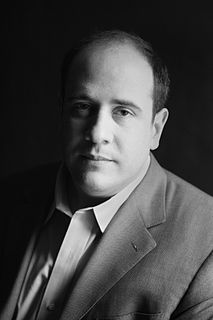A Quote by Jonathan Sacks
A survey carried out across the U.S. between 2004 and 2006 showed that frequent church- or synagogue-goers are more likely to give money to charity.
Related Quotes
Your generosity is reflected in what you do with your own money, not in what you do with other people's money. If I give a lot of money to charity, then I am generous. If you give a smaller fraction of your money to charity, then you are less generous. But if you want to tax me in order to give my money to charity, that does not make you generous.
The religious environmental movement is potentially key to dealing with the greatest problem humans have ever faced, and it has never been captured with more breadth and force than in RENEWAL. I hope this movie is screened in church basements and synagogue social halls across the country, and that it moves many more people of faith off the fence and into action.
Quickly capping 363 oil well fires in a war zone is impossible. The fires would burn out of control until they put themselves out... The resulting soot might well stretch over all of South Asia... It could be carried around the world... [and] the consequences could be dire. Beneath such a pall sunlight would be dimmed, temperatures lowered and droughts more frequent. Spring and summer frosts may be expected... This endangerment of the food supplies... appears to be likely enough that it should affect the war plans.
Many people get what they need from church attendance because the Word is preached, and the rituals are carried on, and God works, but it's drift more than anything else. And that's why the churches keep reaching for some programmatic formula that will make people come and give money. It's just really very sad.
The politics of that year [2004] are old now, but the problem remains the same, the real culture clash of American life. It's between the essence of fundamentalism - paternalism, authority, and charity - and the messy imperatives of democracy, "the din of the vox populi" once derided by Abram Vereide. It's the difference between false unity, preached from above, and real solidarity, pledged between brothers and sisters - the kinds who are always bickering.





































